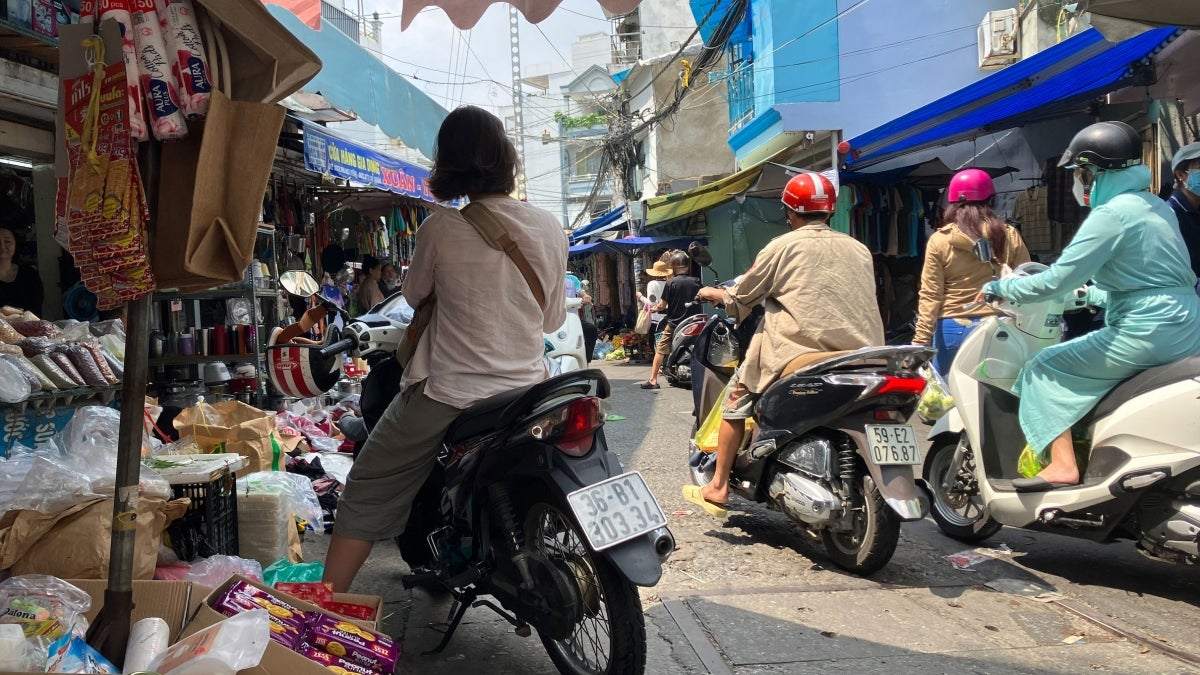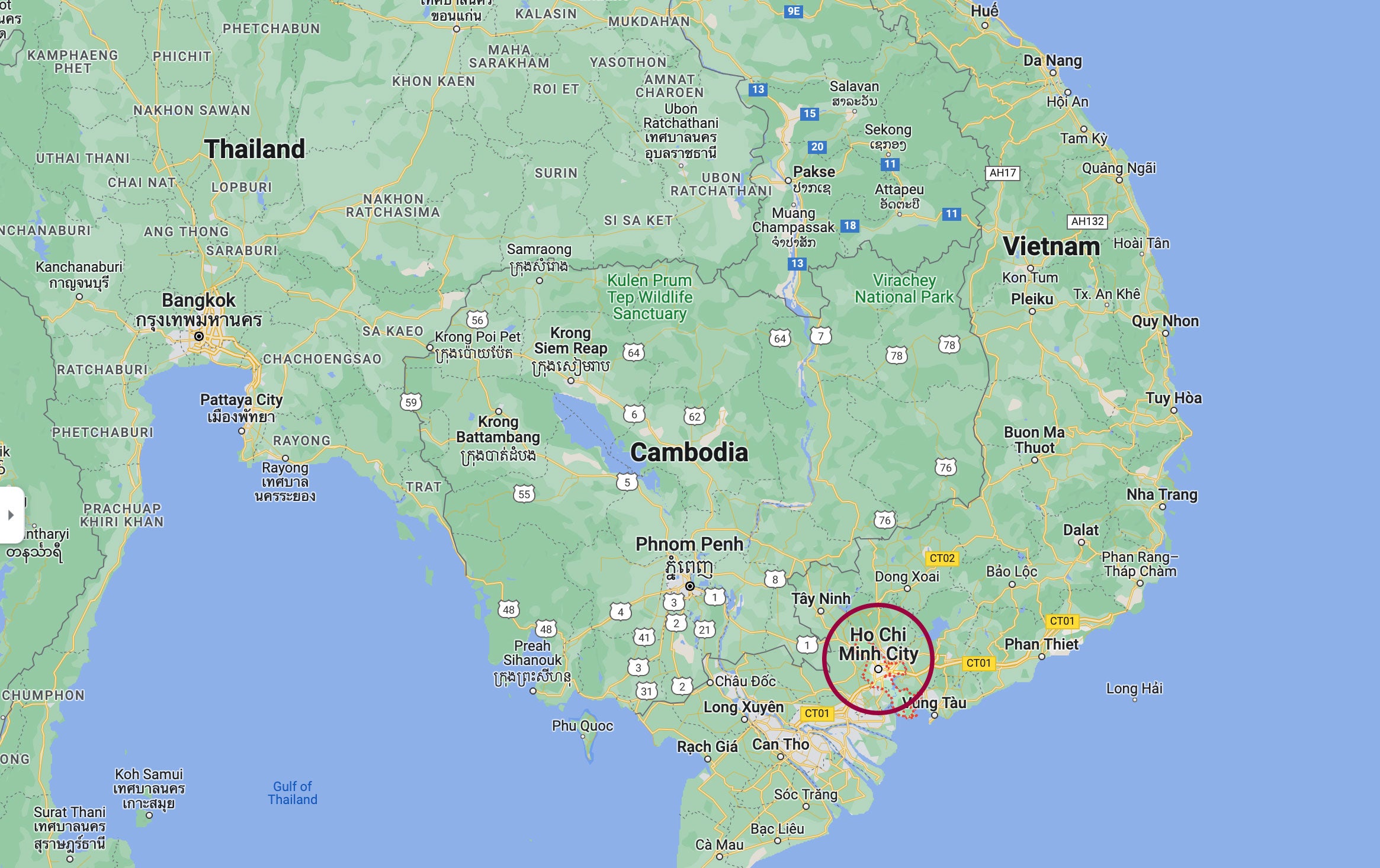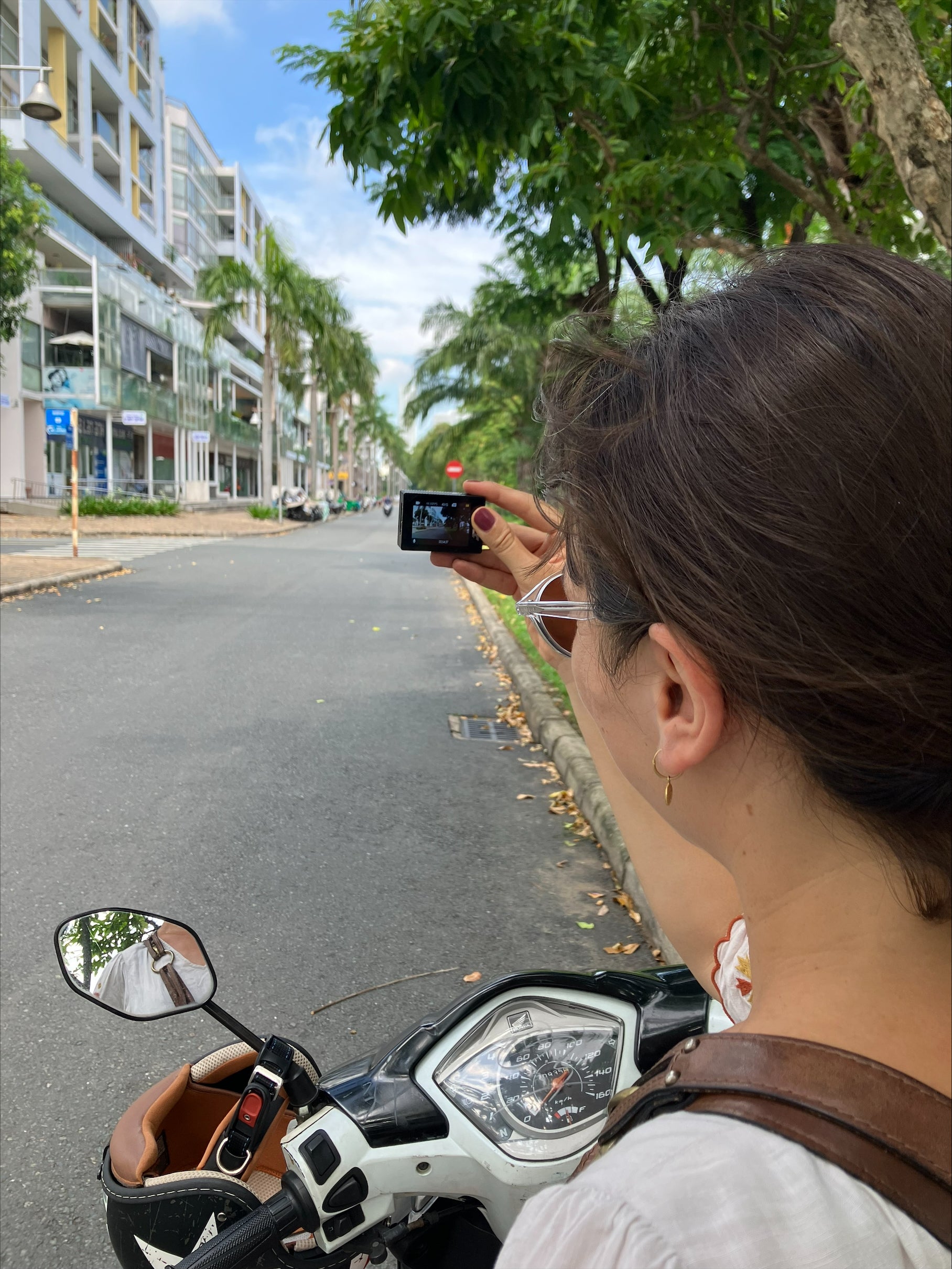Editor's note: This is the second in a series of Q&As highlighting Arizona State University researchers working around the world this summer. Read about a bioarcheologist in Cyprus, tool excavation in Africa, and conserving jaguars in Costa Rica.
On the streets of Ho Chi Minh City, millions of Vietnamese on motorbikes swerve in and around the narrow streets, hopping on and off for food and friends.
Venders use speakers to be heard above the roar of the motorbikes in an attempt to draw customers into the competitive marketplace where 15 to 20 different soups, grilled eggs, bánh mì nóng (hot bread), bánh chưng (stuffed pork cake) and more are on the menu.
Assistant Professor Hue-Tam Jamme
This month, Arizona State University researcher Hue-Tam Jamme joins those bikers — not as a buyer, but rather as an observer of the lively street scene.
Armed with a few cameras and a keen eye, the assistant professor in the School of Geographic Science and Urban Planning is capturing her surroundings as part of her research, which is supported by a grant from the ASU Center for Asian Research.
The footage will serve as data for her latest study — a continuation of the research she conducted after her 2018 trip to the city. That’s when she introduced the theory of "productive frictions." The concept explains how motorbike mobility in Vietnam produces high opportunities for commercial and social interactions on city streets.
But since then, more and more people have been driving cars. After her initial visit, Jamme concluded that cars may displace motorbikes and could be “like a kick in an anthill, likely to completely revamp the ecology of the streets.” She believes they will likely reduce the level of productive frictions in cities.
This week, ASU News caught up with Jamme in Ho Chi Minh City and talked about her research and her surprising results so far.
Hue-Tam Jamme is conducting research in Ho Chi Minh City, the most populous city in Vietnam.
Note: Answers have been edited for length and clarity.
Question: Can you explain the research you are doing this month?
Answer: Car ownership was on the rise when I left (in 2018). Since then, the number of cars on the streets has really grown.
I was mostly interested in documenting the importance of motorbikes in shaping city life, but with this question in mind — what happens to this urbanism once there are more and more cars on the street?
Now, I'm following up to see if the changes I predicted are actually happening.
Q: What does the first part of your research entail?
A: Since I arrived here, I've been interviewing people about how they organize their everyday life — from where they live, work, shop and how they socialize.
My aim is to get at the role of their mode of transportation in connecting the dots between all these different aspects of their lives. I’m also talking to those who own cars, in order to get at that new experience.
Q: How did you conduct the second part of your research?
A: This research begins on a motorbike, with me using an action camera.
Today, early in the morning, I did the first of a series of recordings at 9 a.m. and then another series at noon. Each series is on four different street segments in the Phu Nhuan neighborhood — the right side (sidewalk and ground floor), the left side, traffic in one direction and traffic in the other direction.
I got traveling shots capturing everything that is happening — beginning with the ground floor of the buildings, and next, on the sidewalk and in my traffic lane directly connected to the sidewalk.
Then I did a second shot, where I recorded traffic for five minutes. Based on those traffic counts, I will be able to calculate an hourly traffic flow by type of vehicle.
Q: What is this experience like?
A: I ride very slowly when I’m recording on my motorbike, not so much because of traffic but to make sure every single vehicle, person and storefront is captured correctly on the screen and can be counted accurately.
It's quite dangerous to record the left side video on the one-way street because it is where the cars and trucks drive (motorbikes ride on the right side) and traffic goes faster than on the other side because there is no productive friction on that side, no parking, no stopping — just traffic going through.
After riding the motorbike around for half a day, I am quite dirty. I’m covered with a mixture of dust, humidity from the air and sweat. I have to wear a helmet, pants and long sleeves to protect myself from the sun, a mask to filter out all the dust and fumes from the exhaust pipes, and when it rains, a raincoat that feels like wearing a giant plastic bag.
Hue-Tam Jamme on her motorbike in Vietnam.
Q: What are your preliminary findings — are cars replacing motorbikes?
A: That is something I've been asking myself and revising my position on, well not my position, but my way of approaching these changes.
I used to talk about mobility transition — shifting away from one mode to adopt another. And yet now, at least in Ho Chi Minh City, that’s not what’s happening. What I'm hearing from car owners is that they don't use it every day.
They take trips that they weren’t taking before — trips to the beach, to visit family. … They bring their entire household, which they couldn’t do on their motorbike. So they own the car, but it doesn’t replace the motorbike.
For changes to be visible, five years might not be such a long time. Maybe I need to return five years from now, to see that actually change. I'm not hoping that it changes. I mean, I’m not trying to promote it one way or another, but for now that way of life is still in place.
Photos and video by Hue-Tam Jamme
More Environment and sustainability

Homes for songbirds: Protecting Lucy’s warblers in the urban desert
Each spring, tiny Lucy’s warblers, with their soft gray plumage and rusty crown, return to the Arizona desert, flitting through the mesquite branches in search of safe places to nest.But as urban…

Public education project brings new water recycling process to life
A new virtual reality project developed by an interdisciplinary team at Arizona State University has earned the 2025 WateReuse Award for Excellence in Outreach and Education. The national …

ASU team creates decision-making framework to improve conservation efficiency
Conserving the world’s ecosystems is a hard job — especially in times of climate change, large-scale landscape destruction and the sixth mass extinction. The job’s not made any easier by the fact…





